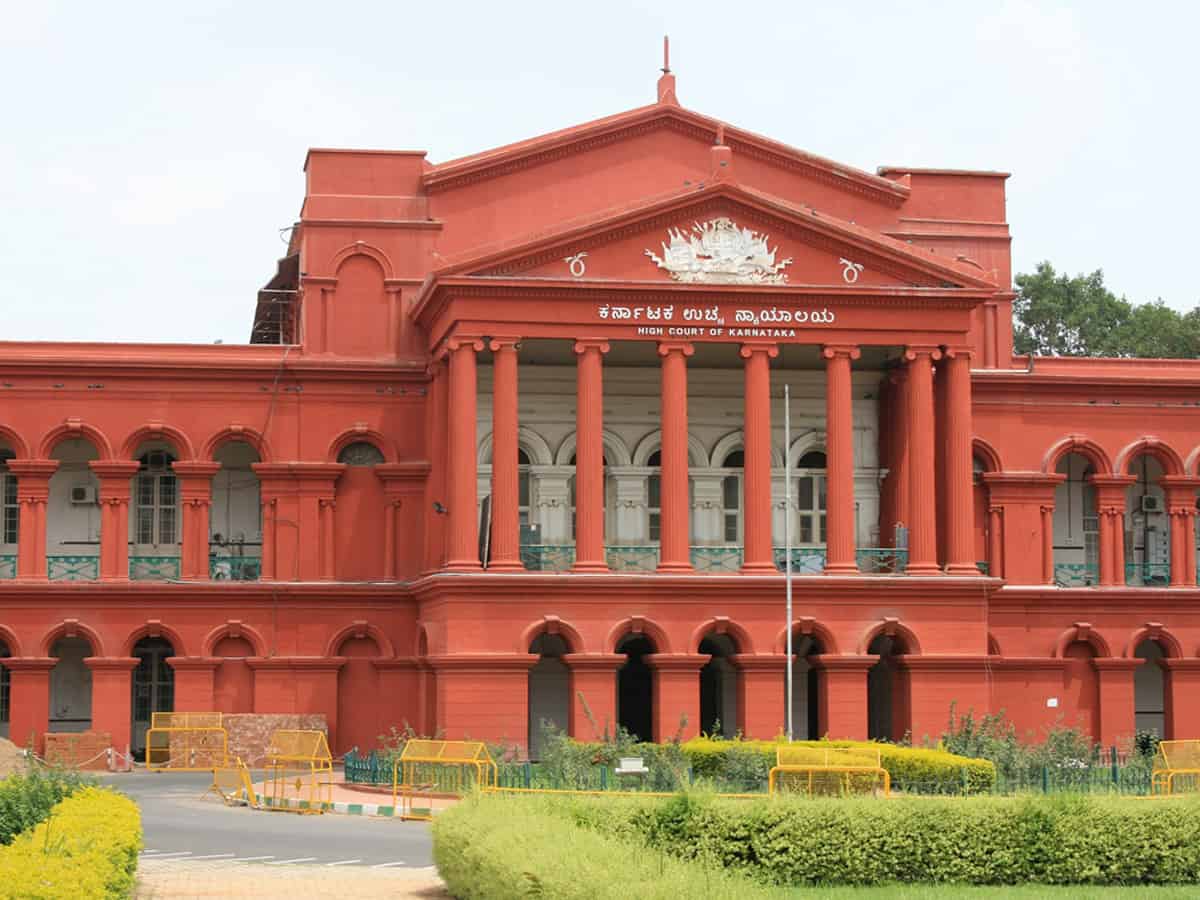
Bengaluru: The Muslim girls who have moved the Karnataka High Court against the ban on Hijab argued on Tuesday that wearing the headscarf was an innocent practice of faith and not a mere display of religious jingoism.
They also requested the full bench of the HC to make a leeway to attend classes with headscarves as the court’s interim order had suspended their ‘fundamental rights’.
Dwelling on Article 25 of the Indian constitution before the bench, senior counsel Devadatt Kamat, appearing for the Muslim girls from Udupi pre-university college, said the article speaks about ‘freedom of conscience’.
“This (freedom of conscience) has a lot of depth in that term. The essence of Article 25 is it protects the practice of innocent faith and not a mere display of religious identity or jingoism,” Kamat told the full bench of the High Court comprising Chief Justice Ritu Raj Awasthi, Justice J M Khazi, and Justice Krishna M Dixit, constituted to hear the Hijab row following commotion and violence on campuses as it turned out into a Hijab versus saffron row.
Article 25 deals with “Freedom of conscience and free profession, practice, and propagation of religion.”
The Muslim girls have challenged the Karnataka government’s February 5 order which restricted students from wearing clothes that could disturb peace, harmony, and law and order.
According to the counsel, wearing Rudraksha or putting a Nama (Tilak or vermillion on the forehead) was similar innocent faith as people who put it feel protected by the divine and a connection with the creator.
“To counter that (Hijab), if somebody wears a shawl (saffron shawl), they will have to show whether it is a display of religious identity alone or is it something more. If it is sanctioned by Hinduism by our Vedas, Upanishads, our scriptures, our lordships are duty bound to protect it. If not, then the Article 25 does not protect,” Kamat argued.
The senior lawyer also cited Sonali Pillai case where she had challenged in the court the school’s order restricting her from wearing a nose ring stating that if they allowed it the school will become ‘a parade of the horribles’.
The girl won the case in the court of law, Kamat said.
Stating that the an innocuous practice of wearing head scarf and not changing the uniform was a facet of freedom of speech and expression, he sought an exemption to wear headscarf as it was in line with right to freedom of speech and expression.
Kamat also questioned the argument of the government banning clothes that could lead to commotion saying that it was an impermissible argument.
He pleaded before the bench not to continue its interim order restricting the students from wearing Hijab or saffron scarves as it ‘suspends the fundamental rights’ of the Muslim girls.
Arguing on behalf of Muslim girls, advocate Ravi Varma Kumar said his clients were restricted entry on December 28 citing code of conduct of the institution. According to him, the government has not yet taken a decision on the uniform dress code
Kumar further said the government order on February 5 did not speak about Hijab per se.
Referring to the Karnataka Education Act, he said the College Development Committee is a non-existent body under the said Act.
“It is an extra-legal authority, which is now endowed with the power to prescribe the uniform,” the lawyer argued.
The court adjourned to Wednesday further hearing of the case.



